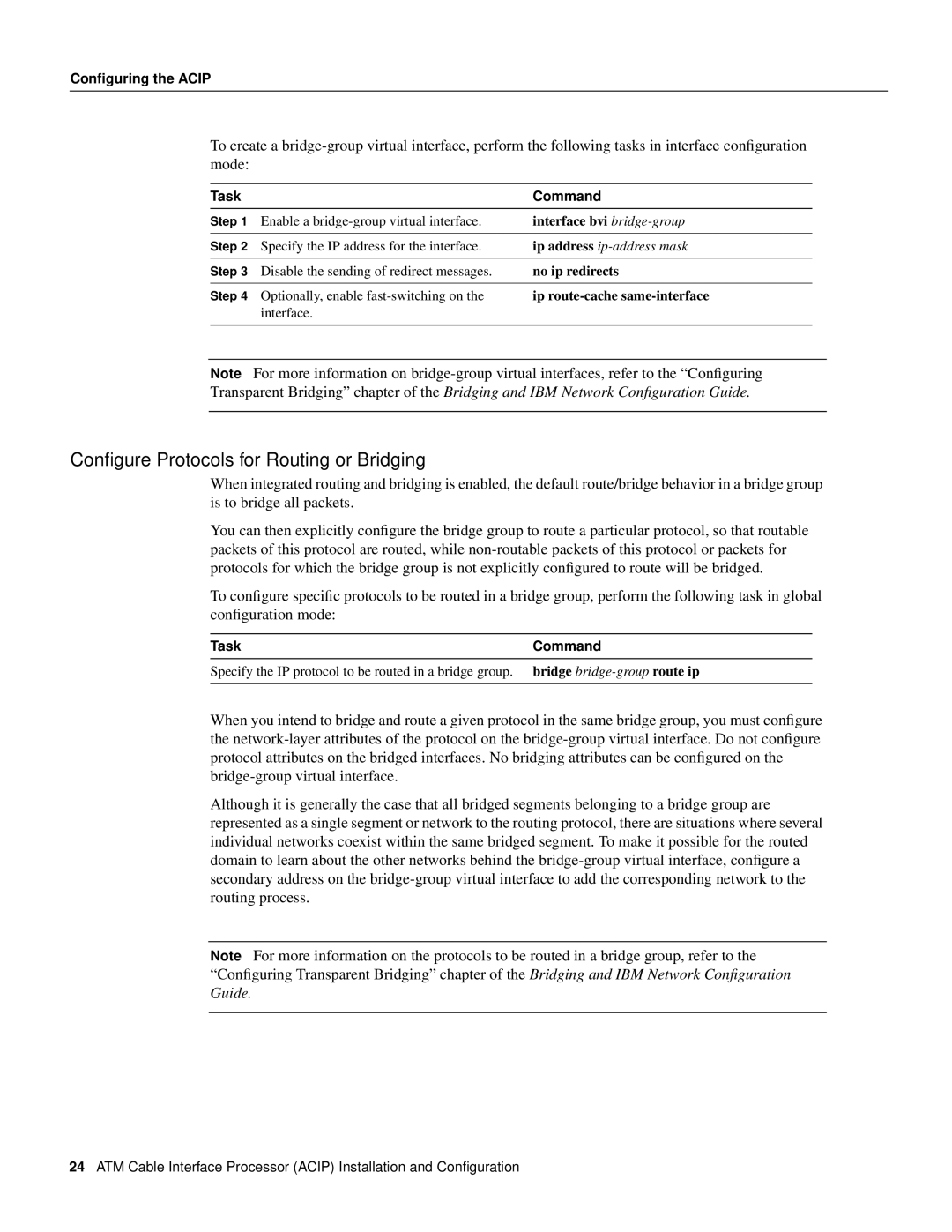
Configuring the ACIP
To create a
Task |
| Command |
Step 1 Enable a | interface bvi | |
|
|
|
Step 2 | Specify the IP address for the interface. | ip address |
|
|
|
Step 3 | Disable the sending of redirect messages. | no ip redirects |
|
|
|
Step 4 | Optionally, enable | ip |
| interface. |
|
|
|
|
Note For more information on
Transparent Bridging” chapter of the Bridging and IBM Network Configuration Guide.
Configure Protocols for Routing or Bridging
When integrated routing and bridging is enabled, the default route/bridge behavior in a bridge group is to bridge all packets.
You can then explicitly configure the bridge group to route a particular protocol, so that routable packets of this protocol are routed, while
To configure specific protocols to be routed in a bridge group, perform the following task in global configuration mode:
Task | Command |
Specify the IP protocol to be routed in a bridge group. | bridge |
|
|
When you intend to bridge and route a given protocol in the same bridge group, you must configure the
Although it is generally the case that all bridged segments belonging to a bridge group are represented as a single segment or network to the routing protocol, there are situations where several individual networks coexist within the same bridged segment. To make it possible for the routed domain to learn about the other networks behind the
Note For more information on the protocols to be routed in a bridge group, refer to the “Configuring Transparent Bridging” chapter of the Bridging and IBM Network Configuration Guide.
24ATM Cable Interface Processor (ACIP) Installation and Configuration
